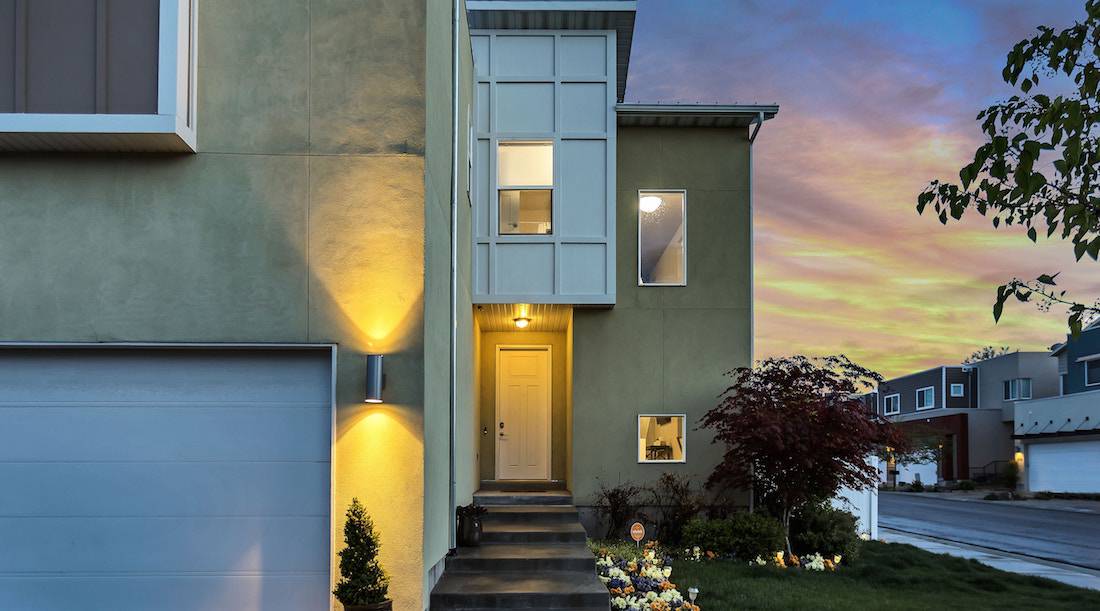Buying Out Your Rental with a Rent-to-Own Agreement
Recent Harvard study claims that only 25% of Los Angeles and San Francisco residents can afford to buy a median-priced house there. Millions of Americans are currently living in the homes they cannot afford and this number rises. The homeownership rate is predictably going down while millennials decide to rent and live their mortgage-free life.
The reason why millennials can’t afford homeownership is simple – they are stuck paying their monthly rent and cannot generate a big enough amount of money to afford housing. It’s obvious that anyone reading this article had an idea of using his/her rental payments towards the house purchase later. So is there a way to rent a place and buy it out after the lease expires?
What is Rent-to-Own Agreement?
Your idea is not weird at all and there is a type of lease that would work for you in this case. Rent-to-Own agreements are not so popular, but they have their benefits that may help you become a proud homeowner without a huge down payment that is so hard to afford. Of course, you can try to qualify for home-buying assistance, but rent-to-own may be a more attractive option for you.
Let’s start with the basics:
This type of agreement allows you to buy out a place after your lease with the landlord expires. Usually, the property owner and renter agree to the term of 1-3 years. During this period you’re a regular tenant with the obligation to pay monthly rent. The contract originally states the property purchase price or how the price will be determined after the lease end.
Any Rent-to-Own Agreement will have a ‘premium payment’ that works just like the down payment. The only difference is that it’s usually not so big, that’s what makes this kind of deal very attractive.
You have to remember that since the Rent-to-Own agreement doesn’t mean that you’ll have to buy a house after the lease, the initial payment will not be refunded. It means that forfeiting the buy-out deal, you’re forfeiting this investment.
The size of the initial payment is usually negotiated between the homeowner and a tenant/buyer. There is no standard price, but it usually ranges between 3-7% (most of the times its really around 3% of the purchase price). Also, check the price to rent ratio in your city to determine whether owning a home is a favorable option.
Some contracts allow you to use this payment toward the final purchase price, but this should be discussed before signing the deal, cause not all of such agreements imply it.
The Pros and Cons of Lease Option Agreements
Ability to Pay Less Upfront
So let’s say the house price is $200,000. In this case, you’ll only have to pay around $14000 upfront. Now consider the usual down payment that will be around 20% ($40,000). Sounds like a good deal, right? It is much more affordable.
Ability to Use Rental Payments Toward Your Purchase Price
Usually, the contracts states that a portion of each monthly rental payment is applied to the purchase price after. This part of your rental payment is called the rent credit. However, it’s not so easy and great.
Most of the times, this rent credit makes your monthly payment slightly bigger. The money that this rent credit generates over the years are serving as the down payment and may be considered fair compensation for taking the property off the market.
You Can Determine The Purchase Price in Advance
The agreement should specify the way you and the homeowner decide to determine the purchase price. You can either set it in advance or set the period of the purchase price determination in the contract itself.
People tend to lock in the price since the market value of the property will increase according to the market growth. Make no mistake, the homeowner will count that it, but you’ll still be able to win in this situation, cause the prices are constantly rising.
You Can Lose Your Initial Payment
The lease option lets you decide whether you want to buy the property after all or not. It means that you’ll be able to get out of the deal and leave without any consequences if you don’t like the property or just decide not to do that.
However, you will lose the money you paid in advance and you won’t be able to get it back like some sort of the security deposit.
Who is Responsible For The House Maintenance?
This is where it always gets tricky. While your landlord owns the house, he knows that he will most likely sell it to you in a year or in a few years. Most of the times, such homeowners imply that since this property will become yours, you are responsible for any renovations, decorations and general maintenance tasks.

Make sure you specify the repairs and maintenance section in your agreement. You should both understand who is responsible for taking care of property maintaining tasks like mowing the lawn, cleaning the leaves and snow, etc. Also, don’t forget about the association fees and taxes that the homeowner may decide to obligate you to pay.
Can I Decide Not To Buy The Property?
It all depends on what kind of agreement you signed with the landlord. There is a tricky difference between two kinds of rent-to-own agreements.
Lease-Option
Allows you to decide whether you want to buy a house out after your lease expires. With this agreement, you’ll be able to easily decline the buy-out offer and forget about this contract.
Lease-Purchase
This wording can make you legally obligated to buy the house after your rental agreement is over. Make sure you clarify the wording and if you’re not able to, better have a talk with your real estate attorney.
Is Rent-to-Own Worth It?
Of course, it all depends on what kind of financial situation you are in. This is a tremendous opportunity for those who have a bad credit score.
Some people may have a bad debt vs income ratio, but they have a big enough budget to make an upfront payment and sign the rent-to-own lease. This type of agreement eliminates the hassle of the down payment and it may come handy for many people.
There is a thing that you should understand before signing this deal: you have 50 to 50 chances that you won’t buy this property after all, you may lose your initial payment and move to another place. However, it’s a good risk for self-employed people who do not have enough track record for the lenders to have a deal with them.






Hello! I plan to look for the “rent to own” house, but I haven’t subscribe that one yet. I need to find right house with low rent price that fit my budget. I have bad credit and still paying the debts. The problem is how do I tell them that I like the house and want to buy that one, but cannot apply for the mortgage due to bad credit score instead of rent to own the house until the credit issues fix by Lexington firm to improve? I cannot find right word to tell them. Can you help me by explaining to them? If you help me by explaining to them, then I will be ready to look for it anytime now before the rental lease expires in Sept. Thanks!!!
Seller and buyer have a rent to own contract for past 10 years, buyer has never been late and has paid 600.00 monthly until 2017 which increased to $650.00 at which time, seller had file for bankruptcy and began a new contract and new loan on house to pay their attorney fees, using house for collateral. Buyer receives an order of discharge from seller’s bankruptcy attorney. Buyer had to much money invested so stayed in home. Now Seller hasn’t paid 2018 taxes or March and April 2019 loan payments. Buyer has all receipts and never late on payment. What should buyer do?
I have lived with my mom since September 2007 in her house. We have been sharing everything, we were both on each other’s checking accounts and I am on the house bills for taking care of things. She absndoned me here at the house and went to my sisters in another county. We talked about selling and decided not to tillmy sister got a hold of her. Now she brought this realtor in to look at the house. I told her I didn’t have enough time to get my stuff out. What are my rights to stay until I get my property out and be able to get a new place for me and my animals.
Hi Angie,
Did you have any rental agreement?
Hi Angie,
It depends on the laws for your state and county. In most cases, you cannot be thrown out without a judicial process – an eviction. Evictions can be pricey when it comes to situations like this because non-payment was not an issue. Because you have an established address over time, you do not necessarily need a lease (it’s a family arrangement). However, if there is a mortgage, then there are prob taxes and insurance. Is your Mom covering those items as well as half of the payment? If so, it might be too burdensome to pay for two places. Either way, unless you are on the deed to the property and have rights to convey title, your Mom has full authority to sell the property despite your wishes. I doubt the Realtor would list the home without the personal situation ironed out – it would interfere with appraisals, financing, etc with a known “tenant” on the property. Best thing is to work things out with your Mom — homes may “sell” quick by contract, but they can take longer to close and fund which is the amount of extra time you would have. Closing dates can be extended to allow you more time OR a leaseback could be drawn up — this would allow your mom to get the proceeds while you continue to rent for an agreed amount of money to the new owner. Hope that helps and good luck ! — Sonny Hotchkiss, REALTOR, licensed in Florida #3179049